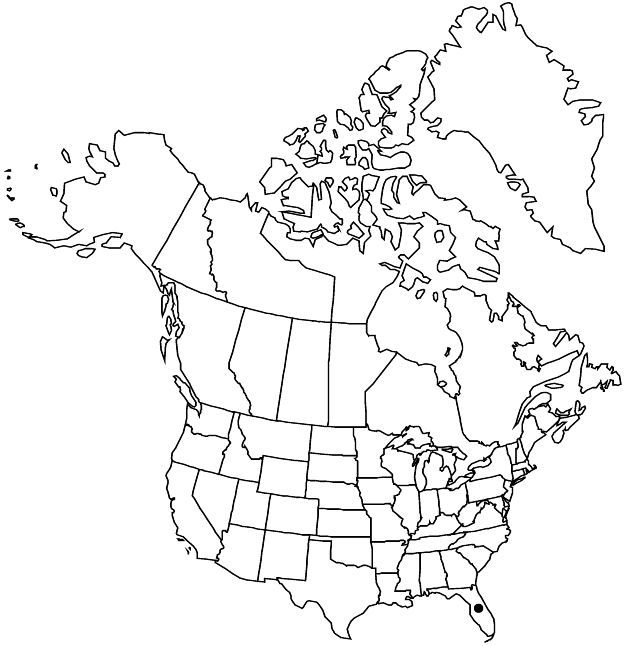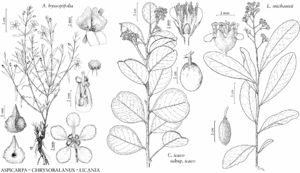Chrysobalanus icaco subsp. icaco
Shrubs or trees 1–5 m; stems usually arising singly. Twigs reddish, glabrate, lenticels elliptic, pith tan; bark striate. Leaves: stipules ovate, 0.8–2.5 mm; petiole 2–3 mm; blade broadly elliptic, broadly ovate or broadly obovate, 3.5–6 × 3–5 cm, length 1.2–1.5 times width, base cuneate, obtuse, or rounded, margins revolute, apex emarginate, rounded or obtuse, surfaces glabrescent except for scattered hairs along midvein. Thyrses: rachis densely hairy; bracteoles caducous, sessile, ovate, 1.5 mm. Flowers: hypanthium 2.5–3 mm; sepals ovate to triangular, 1 mm, both surfaces densely strigose; petals white, spatulate to narrowly spatulate, 3.5–4 mm, glabrous, margins erose, apex obtuse. Drupes white, yellow-green, pink, red, dark purple, or black, (1.2–)1.5–2(–2.5) cm; endocarp 6-ribbed with secondary ribs. 2n = 22.
Phenology: Flowering year-round.
Habitat: Hammocks, beaches, frequently calcareous (shelly) sands.
Elevation: 0–10 m.
Distribution

Fla., Mexico, West Indies, Central America, e South America, introduced in Pacific Islands.
Discussion
Chrysobalanus icaco is known in the flora area only from southern Florida. Leaf morphology varies widely and has prompted a proliferation of names for this taxon. The fruits are eaten, and their flavor varies from a taste of marshmallow to apple; they have folk medicinal value in tropical areas. Although preserved as a foodstuff and used as an ornamental, the species has little current economic value in Florida; it is being investigated for cultivation there as a tropical fruit.
Selected References
None.
